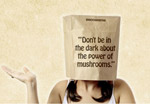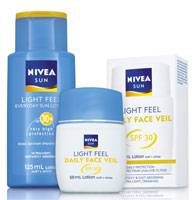Ainsley Salsbury National Vitamin D Awareness Day Interview

Ainsley Salsbury National Vitamin D Awareness Day Interview
New research has raised concerns that overworked Australians could be compromising their health by working excess hours, skipping lunch breaks and remaining indoors all day with limited exposure to sunlight.
Currently, more than half the Australian workforce (55%) remains completely indoors all day with minimal exposure to sunlight. For one in five, they're simply too busy during the work day to get outside.
The Ostelin research1 also revealed:
Close to a third (31%) of the workforce regularly skip lunch breaks or eat at their desk
Expectation and work pressures are the key reasons they don't get outside
Underpinning the issue, one in eight consider their workplace to be constantly -overworked and under-staffed'
Added to our deskbound work culture, Australians are now living, working and playing almost completely indoors during winter1. In fact, almost half the population (40%) spend an additional 70 hours a week indoors commuting, exercising, running errands and socialising, with 7% of hibernating Aussies completely devoid of any outdoor activity during the winter months.
Experts warn this increasingly indoor lifestyle may have considerable health consequences due to lack of Vitamin D, a nutrient sourced mostly from the sun and essential for bone health and muscle function.
The warnings come in the lead up to the second annual National Vitamin D Awareness Day which will take place on Friday 20 June, the eve of the shortest day of the year when sunlight is most limited and the Vitamin D health message most important. The national health initiative calls for Australians to -Take a D-Break'; that is, to simply step outside during the workday to get the required dose of daily sunlight for optimal health and strong bones. The premise is that a -D-Break' today can help prevent a bone break tomorrow.
Vitamin D: A Bone of Contention?
Vitamin D plays an essential role in the body's calcium absorption which is critical for bone health and muscle function. Sufficient Vitamin D also helps prevent musculoskeletal conditions such as osteoporosis.
Despite this, many Australians (almost one in four) dismiss the importance of strong bones. Some (23%) believe there are other more pressing health issues, while one in ten thinks our bones are naturally strong, or consider bone health to be an issue for the elderly1. Compounding this, the majority of Australians (62%) fail to recognise that we reach peak bone mass (maximum bone density) in the early to mid-twenties, with bone loss commencing in the mid-thirties.
Professor Robin Daly, leading Vitamin D expert from Deakin University, said this confronting fact highlights the need for younger Australians to recognise the importance of bone health, in order to prevent serious ailments as they age.
'There's been ample discussion of late around the role of Vitamin D for bone health, particularly off the back of new research revealing four million Australians are Vitamin D deficient2. This research also showed that about one in three young adults aged 18 to 34 were vitamin D deficient - double the number of those aged between 65 and 74.
'However, the emerging and perhaps more poignant debate is around the impact of Vitamin D on other chronic health conditions. 'While bodies of critical research are currently ongoing and in their infancy, an increasing number of indicators suggest that Vitamin D may also influence a range of other systems such as heart health, immune function, mental health and well-being.
'Considering the research we currently have and what we anticipate being available in the near future, it's imperative that we take steps to raise awareness of these health concerns, particularly given that Vitamin D deficiency can be prevented by taking a simple -D-Break'," Daly adds.
-D-Breaks' Creating a Stronger Workforce
HR Expert and Psychologist Ainsley Salsbury applauds the -D-Break' initiative as a way to not only change deskbound workplace cultures, but to boost employee health and productivity.
'Employee health, both physical and psychological, significantly impacts workplace productivity and overall business performance," she explains.
'A recent study has directly linked lower levels of Vitamin D with several conditions that result in -presenteeism' - where employees are physically present at work, but demonstrate reduced productivity and/or performance.
'Other relevant research shows that close to a third of Australian workplaces have limited or low morale with disengaged staff. This is perhaps not surprising given the overworked, indoor and sedentary workplace cultures that have emerged.
'These workforce issues are significant for business and I urge all workplaces to encourage their staff to take time for a -D-Break,' not just on 20 June but every day.
'A change of scenery offers vast benefits for employee motivation, morale and creativity. By taking part in this low cost initiative to change employee perspective and support their wellbeing, you're likely to reap the business rewards and create a happier, healthier and more engaged workforce," she concludes.
Last year, more than 20,000 employees from up to 20 organisations across the country registered to take part in the first-ever National Vitamin D Awareness Day, a number well on track to be exceeded in 2014.
Workplaces interested in taking part can register online at www.ostelincom.au/register-company.
Currently, more than half the Australian workforce (55%) remains completely indoors all day with minimal exposure to sunlight. For one in five, they're simply too busy during the work day to get outside.
The Ostelin research1 also revealed:
Close to a third (31%) of the workforce regularly skip lunch breaks or eat at their desk
Expectation and work pressures are the key reasons they don't get outside
Underpinning the issue, one in eight consider their workplace to be constantly -overworked and under-staffed'
Added to our deskbound work culture, Australians are now living, working and playing almost completely indoors during winter1. In fact, almost half the population (40%) spend an additional 70 hours a week indoors commuting, exercising, running errands and socialising, with 7% of hibernating Aussies completely devoid of any outdoor activity during the winter months.
Experts warn this increasingly indoor lifestyle may have considerable health consequences due to lack of Vitamin D, a nutrient sourced mostly from the sun and essential for bone health and muscle function.
The warnings come in the lead up to the second annual National Vitamin D Awareness Day which will take place on Friday 20 June, the eve of the shortest day of the year when sunlight is most limited and the Vitamin D health message most important. The national health initiative calls for Australians to -Take a D-Break'; that is, to simply step outside during the workday to get the required dose of daily sunlight for optimal health and strong bones. The premise is that a -D-Break' today can help prevent a bone break tomorrow.
Vitamin D: A Bone of Contention?
Vitamin D plays an essential role in the body's calcium absorption which is critical for bone health and muscle function. Sufficient Vitamin D also helps prevent musculoskeletal conditions such as osteoporosis.
Despite this, many Australians (almost one in four) dismiss the importance of strong bones. Some (23%) believe there are other more pressing health issues, while one in ten thinks our bones are naturally strong, or consider bone health to be an issue for the elderly1. Compounding this, the majority of Australians (62%) fail to recognise that we reach peak bone mass (maximum bone density) in the early to mid-twenties, with bone loss commencing in the mid-thirties.
Professor Robin Daly, leading Vitamin D expert from Deakin University, said this confronting fact highlights the need for younger Australians to recognise the importance of bone health, in order to prevent serious ailments as they age.
'There's been ample discussion of late around the role of Vitamin D for bone health, particularly off the back of new research revealing four million Australians are Vitamin D deficient2. This research also showed that about one in three young adults aged 18 to 34 were vitamin D deficient - double the number of those aged between 65 and 74.
'However, the emerging and perhaps more poignant debate is around the impact of Vitamin D on other chronic health conditions. 'While bodies of critical research are currently ongoing and in their infancy, an increasing number of indicators suggest that Vitamin D may also influence a range of other systems such as heart health, immune function, mental health and well-being.
'Considering the research we currently have and what we anticipate being available in the near future, it's imperative that we take steps to raise awareness of these health concerns, particularly given that Vitamin D deficiency can be prevented by taking a simple -D-Break'," Daly adds.
-D-Breaks' Creating a Stronger Workforce
HR Expert and Psychologist Ainsley Salsbury applauds the -D-Break' initiative as a way to not only change deskbound workplace cultures, but to boost employee health and productivity.
'Employee health, both physical and psychological, significantly impacts workplace productivity and overall business performance," she explains.
'A recent study has directly linked lower levels of Vitamin D with several conditions that result in -presenteeism' - where employees are physically present at work, but demonstrate reduced productivity and/or performance.
'Other relevant research shows that close to a third of Australian workplaces have limited or low morale with disengaged staff. This is perhaps not surprising given the overworked, indoor and sedentary workplace cultures that have emerged.
'These workforce issues are significant for business and I urge all workplaces to encourage their staff to take time for a -D-Break,' not just on 20 June but every day.
'A change of scenery offers vast benefits for employee motivation, morale and creativity. By taking part in this low cost initiative to change employee perspective and support their wellbeing, you're likely to reap the business rewards and create a happier, healthier and more engaged workforce," she concludes.
Last year, more than 20,000 employees from up to 20 organisations across the country registered to take part in the first-ever National Vitamin D Awareness Day, a number well on track to be exceeded in 2014.
Workplaces interested in taking part can register online at www.ostelincom.au/register-company.
Interview with Psychologist Ainsley Salsbury
Question: How does being overworked and under-sunned become detrimental to our health?
Ainsley Salsbury: The direct health effects of being overworked and under-sunned include increased risk of Vitamin D deficiency. A recent Australian Health Survey indicates that 4 million Australians are Vitamin D deficient.
Question: How can we combat some of the effects of being overworked and stressed?
Ainsley Salsbury: Work (in all of its forms) has the potential to be very life-enriching. But sometimes, in our efforts to work hard and apply ourselves, we can inadvertently end up risking our well-being and undermining the efficiency and sustainability of our performance.
Some of the key ways to combat these effects are to deliberately and mindfully balance important aspects of our lives (including health, relationships and leisure), to take steps to ensure you have the clarity and resources necessary to deliver agreed results, and also that you take time to cultivate and connect to positive aspects of your work or workplace.
Question: Why is Vitamin D important for our health and our wellbeing?
Ainsley Salsbury: Vitamin D is sourced mostly from direct sun exposure and is essential for bone health and muscle function. In addition, there are some ongoing areas of research which appear to signal that Vitamin D could have an important role in other systems - such as heart health, immune function and mental health and well-being.
Question: What are your top tips for us approaching National Vitamin D Awareness Day?
Ainsley Salsbury: Make it a fun and positive experience. While the direct health benefits of 'Taking a D-break' are certainly important, so too is any 'feel good' factor associated with the exercise. From a workplace perspective, research indicates that the psychological health of businesses and positive emotional states (like morale) deliver clear benefits on a human and business performance level.
Question: Are you surprised that it is young people (18-34 years) who have one of the highest rates of Vitamin D deficiency?
Ainsley Salsbury: Personally, I am surprised by the results, and I hope that it is a positive wake-up call to the Gen Y population to take preventative health action. In my view the results suggest that this group of young adults is unwittingly risking their health by adopting a heavily indoors lifestyle.
Question: What is the main message you want Australian females to take from the National Vitamin D Awareness Day?
Ainsley Salsbury: Invest in yourself. Use the day to take a D-Break and soak up the health and emotional benefits. Also take the time to reflect on other simple, low costs ways in which you can build wellness promoting practices into your work and personal life.
Ainsley Salsbury: The direct health effects of being overworked and under-sunned include increased risk of Vitamin D deficiency. A recent Australian Health Survey indicates that 4 million Australians are Vitamin D deficient.
Question: How can we combat some of the effects of being overworked and stressed?
Ainsley Salsbury: Work (in all of its forms) has the potential to be very life-enriching. But sometimes, in our efforts to work hard and apply ourselves, we can inadvertently end up risking our well-being and undermining the efficiency and sustainability of our performance.
Some of the key ways to combat these effects are to deliberately and mindfully balance important aspects of our lives (including health, relationships and leisure), to take steps to ensure you have the clarity and resources necessary to deliver agreed results, and also that you take time to cultivate and connect to positive aspects of your work or workplace.
Question: Why is Vitamin D important for our health and our wellbeing?
Ainsley Salsbury: Vitamin D is sourced mostly from direct sun exposure and is essential for bone health and muscle function. In addition, there are some ongoing areas of research which appear to signal that Vitamin D could have an important role in other systems - such as heart health, immune function and mental health and well-being.
Question: What are your top tips for us approaching National Vitamin D Awareness Day?
Ainsley Salsbury: Make it a fun and positive experience. While the direct health benefits of 'Taking a D-break' are certainly important, so too is any 'feel good' factor associated with the exercise. From a workplace perspective, research indicates that the psychological health of businesses and positive emotional states (like morale) deliver clear benefits on a human and business performance level.
Question: Are you surprised that it is young people (18-34 years) who have one of the highest rates of Vitamin D deficiency?
Ainsley Salsbury: Personally, I am surprised by the results, and I hope that it is a positive wake-up call to the Gen Y population to take preventative health action. In my view the results suggest that this group of young adults is unwittingly risking their health by adopting a heavily indoors lifestyle.
Question: What is the main message you want Australian females to take from the National Vitamin D Awareness Day?
Ainsley Salsbury: Invest in yourself. Use the day to take a D-Break and soak up the health and emotional benefits. Also take the time to reflect on other simple, low costs ways in which you can build wellness promoting practices into your work and personal life.
A Snapshot: Women, Vitamin D & Bone Health in Australia
Vitamin D & Bone Health:
Close to half of all Australian women (49%) are unaware of the risk factors of Vitamin D deficiency
Similarly, almost a quarter (22%) dismiss the importance of strong bones, while one in five (20%) feel there's other more pressing health issues to consider
Less than a quarter (23%) are doing the right type of exercise (weight bearing or strength training) to improve or maintain bone health
Overworked & Under-sunned:
One in five Aussie women (20%) work beyond the average work week
For more than half (53%), its simply expected of them, while one in five (20%) are overworked and under-staffed. One in ten (9%) cite lack of job security as the reason for excess hours
As such, close to a third (31%) spend little to no time outdoors on an average winter work day – significantly more than men (23%)
The Lost Lunch Break:
As a result, lunch breaks are a rarity for nearly one in three (31%) Australian women
A quarter (25%) remain deskbound all day due to work pressures and organisational culture
One in six (17%) are simply too busy to leave the office, while 3% fear the boss will question their work ethic if they ditch the desk
Winter Woes:
One in eight women (13%) feel less motivated in winter due to longer working hours. Lack of sunshine (55%) is the primary reason they feel less motivated.
Hibernating Habits:
Aussie women are now living, working & playing almost completely indoors during winter.
Added to our deskbound work culture, at least 60% of women spend an additional 40 hours per week indoors commuting, running errands and socialising
Interview by Brooke Hunter
Close to half of all Australian women (49%) are unaware of the risk factors of Vitamin D deficiency
Similarly, almost a quarter (22%) dismiss the importance of strong bones, while one in five (20%) feel there's other more pressing health issues to consider
Less than a quarter (23%) are doing the right type of exercise (weight bearing or strength training) to improve or maintain bone health
Overworked & Under-sunned:
One in five Aussie women (20%) work beyond the average work week
For more than half (53%), its simply expected of them, while one in five (20%) are overworked and under-staffed. One in ten (9%) cite lack of job security as the reason for excess hours
As such, close to a third (31%) spend little to no time outdoors on an average winter work day – significantly more than men (23%)
The Lost Lunch Break:
As a result, lunch breaks are a rarity for nearly one in three (31%) Australian women
A quarter (25%) remain deskbound all day due to work pressures and organisational culture
One in six (17%) are simply too busy to leave the office, while 3% fear the boss will question their work ethic if they ditch the desk
Winter Woes:
One in eight women (13%) feel less motivated in winter due to longer working hours. Lack of sunshine (55%) is the primary reason they feel less motivated.
Hibernating Habits:
Aussie women are now living, working & playing almost completely indoors during winter.
Added to our deskbound work culture, at least 60% of women spend an additional 40 hours per week indoors commuting, running errands and socialising
Interview by Brooke Hunter
Have You Seen This?
MORE










